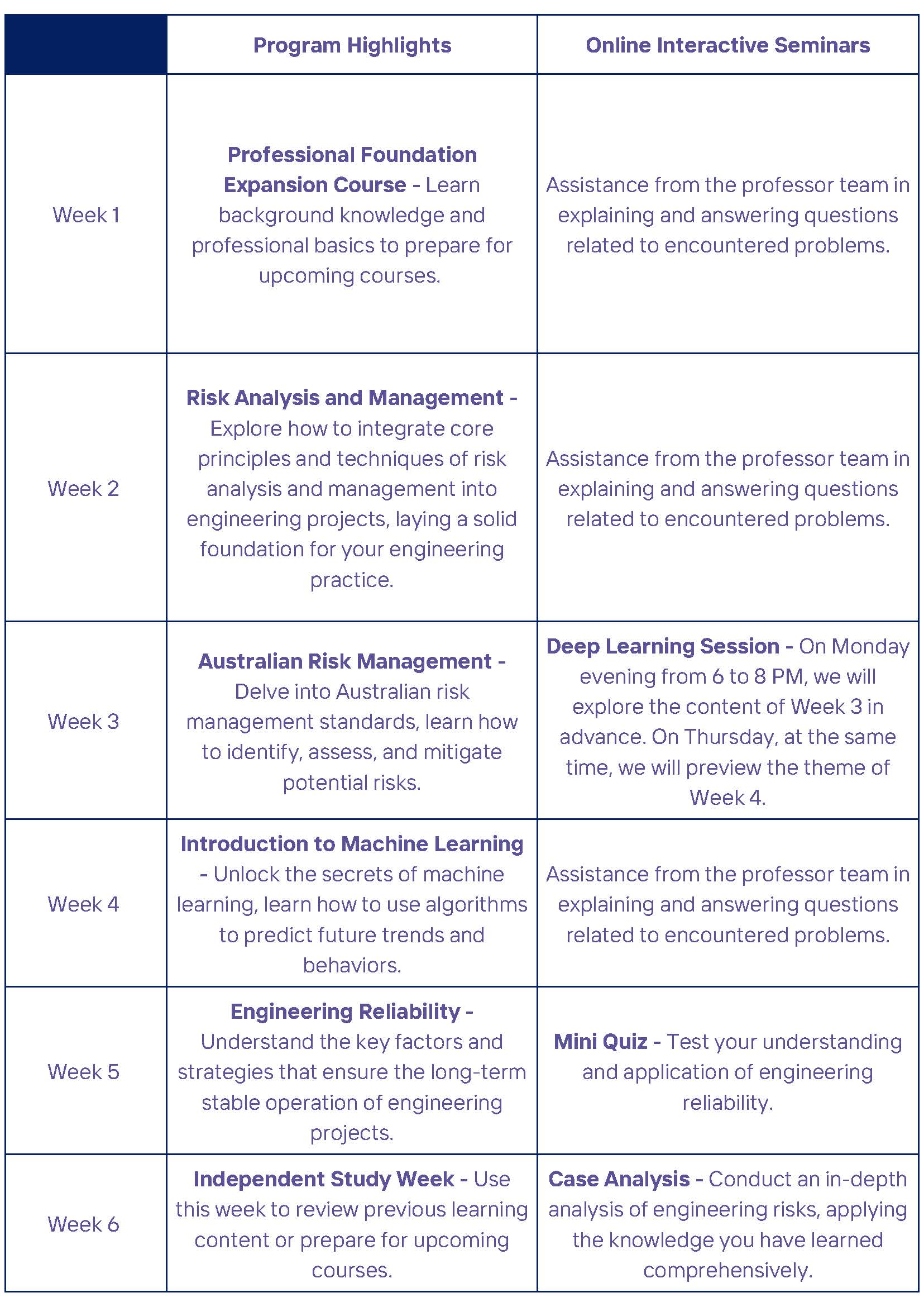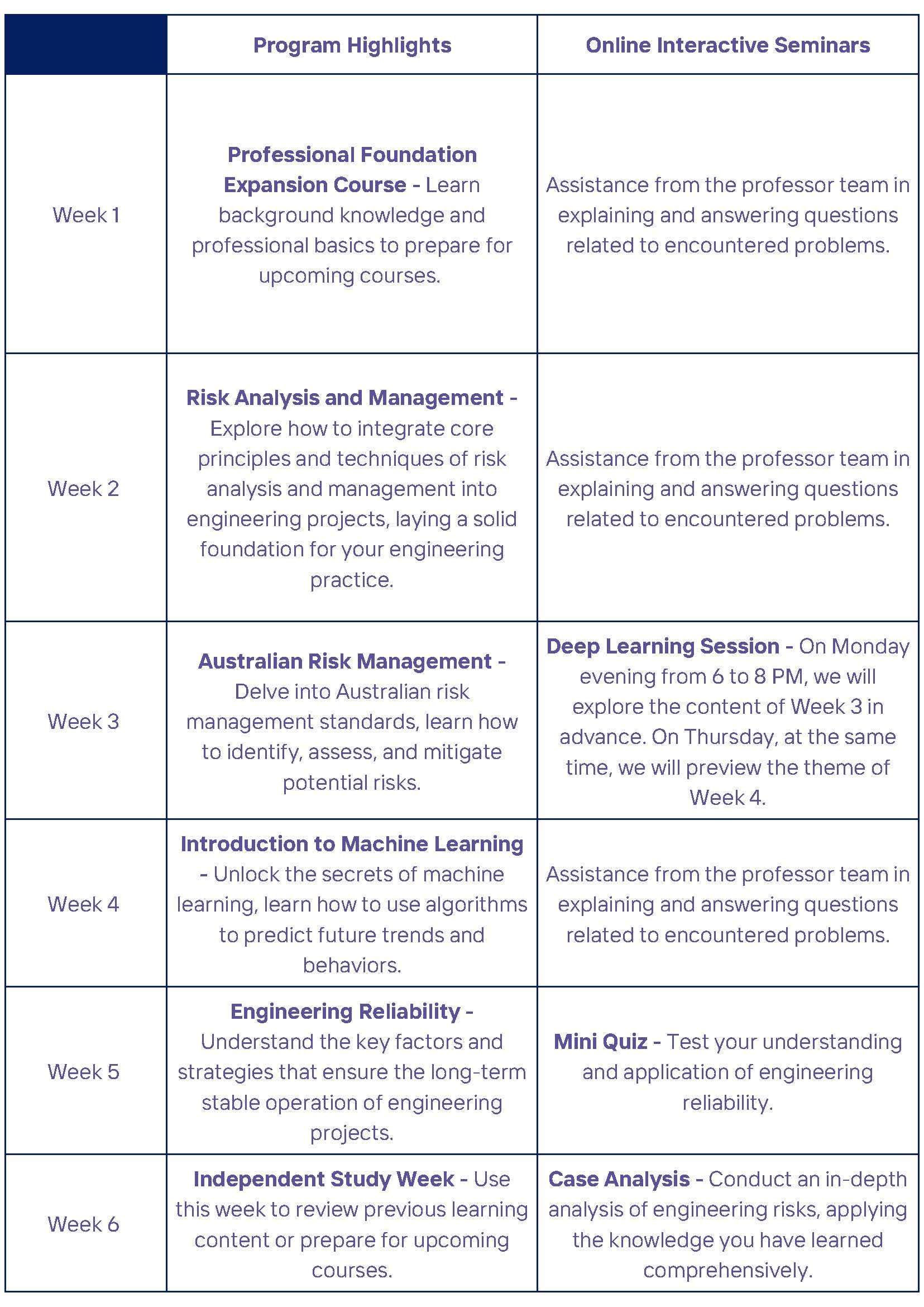The engineering sector is often a key department of a nation’s economy. Engineering professionals play an active role in economic growth by constructing and maintaining infrastructure, driving the development of manufacturing, and promoting technological innovation. Countries invest significant funds in large-scale infrastructure projects. Consequently, there is a need for more professional engineers and project managers to handle risk management, time management, quality control, and other aspects of these projects.
The Engineering Project Management course at the Faculty of Engineering and IT of the University of Melbourne is designed specifically for individuals passionate and interested in advancing their knowledge and skills in engineering and IT. This course blends lectures with practical learning, aiming to equip students with the tools, skills, and mindset needed to solve real-world challenges and provide solutions in project management.
* Online and offline courses can be enrolled in separately.
The Engineering Project Management course at the Faculty of Engineering and Information Technology at the University of Melbourne is designed to enable students to utilize advanced risk management tools and techniques in complex project environments, ensuring the success and sustainability of projects. Through this in-depth interaction and exchange, participants will be able to better understand and apply project management knowledge, creating greater value for society.
Introduces how to apply principles and techniques of risk analysis and management to engineering projects.
Detailed explanation of the risk analysis process based on the Australian Risk Management Guide.
Introduction to the use of artificial intelligence (machine learning) for the analysis of risk likelihood and consequences.
Calculation of project reliability in risk management.
Specific case analysis of large-scale Australian project management cases (such as Melbourne Public Transport, Victorian Water Projects, etc.).
Online Course (6 Weeks):
Professor-led instruction (17 hours) + Practical analysis (25 hours) + Fundamental expansion (15 hours) + Mentor guidance (25 hours) = Total of 82 hours
Program Location:
In the country of the participant’s residence

Program Location:
Melbourne, Australia
* The itinerary may be subject to change based on actual circumstances

The course is provided by the Faculty of Engineering and IT at the University of Melbourne, including 82 hours of online courses and a two-week offline field research course.
Expert tutors from the Faculty of Engineering and IT at the University of Melbourne will provide guidance for the entire course.
The course will be offered on the campus of the Faculty of Engineering and IT at the University of Melbourne.
Participants will undertake their course at the Faculty of Engineering and IT at the University of Melbourne.
Participants will also visit the university’s latest industrial laboratories, including facilities for 3D printing, laser cutting, and the nanoresearch center.
In addition to the formal course schedule, other activities and arrangements are managed by Global Elite School.
Accommodation and Meals:
Daily meals will be provided by the partner restaurants of Global Elite School.
Accommodation will be arranged in partner dormitories or hotels of Global Elite School.
PART A: Course learning and material costs.
PART B: Includes course fees, insurance, accommodation fees, etc. It does not cover personal visa application, visa fees, transportation costs, personal expenses, and potential baggage handling fees.
Melbourne has a well-developed communication network. You can consider the following options:
Melbourne is a modern city where most places accept credit or debit card payments. However, cash may be more convenient in some small shops or markets. It’s advisable to carry a small amount of cash for backup, and ATMs are available for withdrawals.
Melbourne has high-standard medical services. If you fall ill:
In case of an emergency in Melbourne:
The voltage in Melbourne is 230V with a frequency of 50Hz, and three-pronged outlets are used. It’s recommended to bring a converter to ensure your electronic devices are compatible in Melbourne.